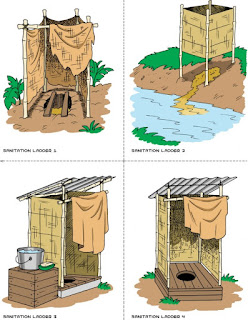Take some time to analyse this picture: It took me a bit of time to fully digest what is happening in this picture, thinking about what conclusions could be drawn from it based on all that we know so far about sanitation, but also the wider geographical and historical conclusions that we could make- it is a fascinating picture. This is the reality of bucket toilets - a service provided by governments to remove human waste in order to improve the sanitation of an area in the township of Ezenzeleni, Cape Town. Cape Town, according to C. Mcfarlane and J Silver (2017), has become the 'Poolitical City', where issues around sanitation has been forced out into the open. Where the government has been forced to confront some of the inadequacies of its provision on sanitation and people have openly discussed, and protested about sanitation. It makes for a hugely interesting place to study as a result. Driving this are the pressures that many cities around the world are ...


